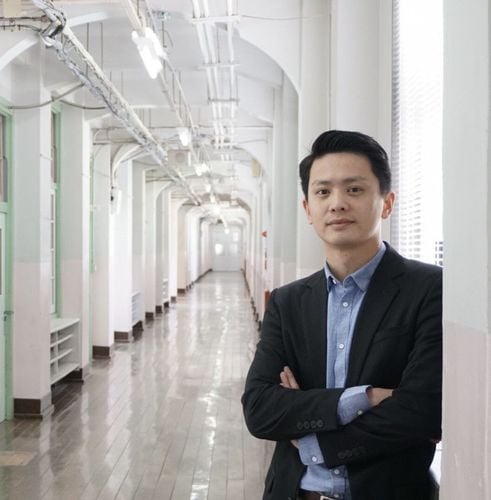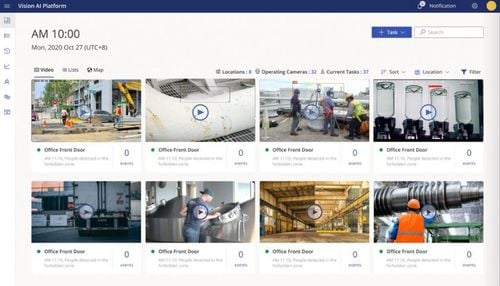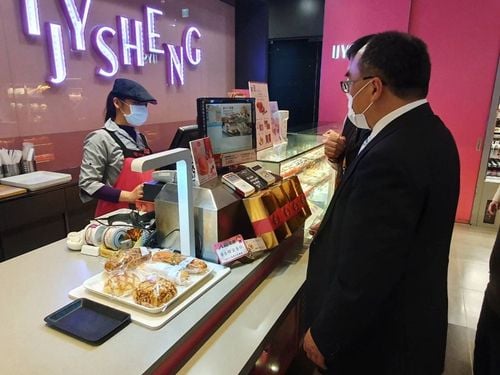【2020 Solutions】 Smart Scheduling for Smoother Rides and Cost Reduction
The COVID-19 pandemic has spurred the popularity of delivery platforms such as Uber Eats and Foodpanda, creating an urgent need for smart dispatch systems. Imagine if drivers could determine from their mobile phones or online platforms where there are no traffic jams, which roads have the fewest traffic lights? AI could help plan the most suitable schedules, significantly improving logistics efficiency and reducing overwork.
With the flourishing of commercial activities, the logistics sector, which provides personnel/goods movement services, lacks smarter scheduling. According to research by the international research organization Gartner, 97% of the global logistics industry does not use optimized software for effective planning.
Smart Scheduling Resolves Stakeholder Pain Points
Let's first understand where the pain points lie among stakeholders in the logistics industry chain?
Employer's perspective: In response to various types of delivery services, especially new types like food delivery, how to increase performance without expanding the fleet size?
Dispatcher's perspective: Vehicle scheduling is very challenging, and the bosses demand increased efficiency, which is difficult to achieve without computers.
Driver's perspective: Poor scheduling by the dispatcher leads to incomplete deliveries or traffic jams, often requiring overtime, or even accidentally running red lights, resulting in fines.
Addressing these issues, Zong Lan-Ken, founder and CEO of Singularity Infinite, states, 'All these problems are classical mathematical problems.' Singularity Infinite's A.I.R Smart Dispatch Cloud Service is a cloud-based software service that resolves last-mile delivery scheduling and routing issues. It addresses daily challenges faced by operators in managing goods, vehicles, and routes, enabling them to handle more orders with fewer vehicles.

▲Smart Scheduling System Schedule
Zong Lan-Ken, who specializes in data science solutions for public needs and formerly served as an associate research professor at the Geographic Information Systems Research Center of Feng Chia University, founded Singularity Infinite in 2015. He aims to solve smart mobility issues using mathematics, statistics, and software technology. The company's developed AIRouting optimization technique provides real-time traffic data and dynamic planning to assist operators in more efficient dispatching.
Singularity Infinite integrates real-time traffic and signal information and can handle high-frequency unconventional logistics models, such as gourmet delivery and electric scooter battery swap strategies. For example, electric scooters must replace their batteries after every 50 kilometers. If a scooter runs out of battery, the rider leaves it on the roadside. The scooter operator must locate the depleted scooter and replace its battery. To maintain effective operations, operators must keep the utilization rate of scooters between 80%-90%. For instance, in the Greater Taipei area with 10,000 scooters, maintaining more than 8,000 scooters on the roads at any time is crucial, yet without a smart scheduling system, high utilization rates cannot be maintained. Following the system's introduction by WeMo in 2019, the utilization rate significantly improved by approximately 75%.

▲Effectiveness of AIR Smart Dispatch Cloud Service Introduction
AIR Smart Dispatch Cloud Service has effectively increased the utilization rate by 75%
Additionally, in the food ingredient delivery logistics, there have been notable results. Traditional ingredient delivery companies need up to 25 trucks per day to transport fresh ingredients from produce markets, agricultural marketing companies, or seafood markets to restaurants. After introducing the AIR Smart Dispatch Cloud Service, the number of trucks required per day was reduced to a maximum of 12, significantly cutting over half of the truck costs.
Singularity Infinite's team includes experts in mathematics, transportation, and AI technologies. The traffic information used is from OpenStreetMap, supplemented with province-wide real-time traffic flow data to analyze congestion during different periods. Additionally, future plans include using signal timing data to calculate which road segments have the fewest red lights and shortest red durations, to plan optimal routes, reducing the burden on logistics operators and drivers.

▲Singularity Infinite's team, the picture (third from right) is Zong Lan-Ken, founder and CEO of Singularity Infinite
Besides logistics and transport, AIR Smart Dispatch Cloud Service can also be applied in container yard stacking, factory machine scheduling, project management, hospital bed allocation or operating room scheduling, and flight gate assignments among other areas.
Singularity Infinite employs two business models: One involves customizing exclusive scheduling systems for clients, paid monthly/yearly on a pay-per-use basis; the other involves system integration followed by revenue sharing with the client. Fundamentally, Singularity Infinite provides APIs for integration, allowing operators to develop their own apps or provide services through websites.
In the entrepreneurial process, what are the most challenging aspects? Zong Lan-Ken believes that entrepreneurship is a continuous series of multiple-choice questions, simplifying numerous questions into fewer choices, further simplifying each option to choose the correct answer. Previously, it was mistakenly believed that 'technology can solve problems', but it was discovered that efficiency issues can not be solely resolved through mathematics, as the world does not operate this way. In this ecosystem, 'who' will stop adoption due to 'whose opinion'?
For example, in the logistics industry, the most critical aspect of transporting goods is the driver, who needs rest. If the system is introduced, and scheduling becomes completely transparent, drivers do not get time to rest. The wrong introduction makes the system a tool for exploitation. Hence, it is essential to consider human aspects, integrating rest times into the mathematical model to gain driver support. Also, by knowing beforehand that a driver's home is near a train station, scheduling the last stop near the station lets the driver return home right after delivery. These examples can significantly increase driver acceptance and greatly enhance the success rate of project adoption.
Zong Lan-Ken finally points out that data collection is crucial to the success of traditional industries' digital transformation in the future. Without data, there is no data science, and no AI. Singularity Infinite holds patents for automated data collection and recording, which can reduce data collection costs. At the same time, the collected and stored data's high usability will serve as an important foundation for future intelligent logistics.
「Translated content is generated by ChatGPT and is for reference only. Translation date:2024-05-19」


